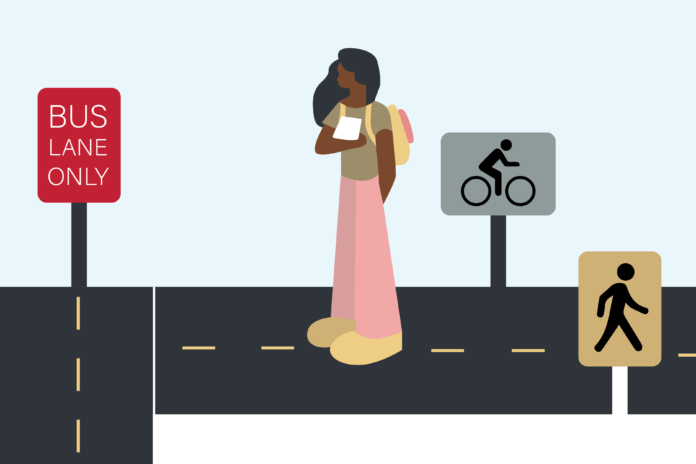Campus commutes are back with an emphasis on sustainability
After more than a year of distance learning, the return to campus also means the return to daily commutes. While many students may already be familiar with the different transportation services available to them, new students face the challenge of learning how to get around on and off campus.
For many students, this means a new bike. ASUCD Bike Barn senior mechanic Oscar McBain said that the Bike Barn is a key resource for new and experienced bikers alike.
“The ASUCD Bike Barn has been on campus for 50 years,” McBain said via email. “Our goal is to empower students for success at UC Davis by providing helpful service to keep you on the road.”
The most important thing for prospective bike owners and bike riders is to find a bike that fits their specific needs, according to McBain.
“Think of your bike as an investment and a tool; when selected and maintained correctly, it will save you lots of time, money and effort,” McBain said. “This means something
different for everyone…consider your options and let the Bike Barn’s mechanics help empower you to enjoy your ride.”
McBain said that this is an exciting year for the Bike Barn both because of the return of students and new programs.
“We had an awesome move-in week and the start of school — we sold out of almost all our bikes,” McBain said. “We will be launching…our mobile repair service using our TGIF-funded e-cargo bike to meet students where they are to provide assistance and spread the word about our services.”
While biking is the most common mode of transportation in Davis, those who do not bike also have convenient transportation options available to them, notably ASUCD Unitrans, which is free to all undergraduate students.
ASUCD Unitrans general manager Jeffery Flynn explained that the Unitrans bus system is a great resource for students and community members alike.
“We’re one of the very few public transit systems in America that is operated by students,” Flynn said. “We are the city’s bus system, we’re the campus bus system and it’s very, very rare to see a city and campus bus system that is totally operated by students —
I think this makes it more fun, more friendly and more approachable.”
Flynn explained despite the fact that Unitrans is operating with fewer student drivers than what is typical. Multiple lines are operating with service running semi-frequently.
“We have 18 lines that go to almost every single place in Davis and while we’re not quite back at full strength for service levels, service is relatively frequent,” Flynn said. “Right now we’re running 30-60 minute service and as we get more student drivers we’ll be at 15-30 minute service.”
Like the Bike Barn, Unitrans has new plans to update its services in the coming years.
“Our goal is to never buy a fossil fuel powered bus ever again,” Flynn said. “We have about 50 busses and our plan is to start retiring those busses and replacing them with electric buses and within the next two to two and a half years we’ll have replaced about 25% of our fleet with electric buses.”
Another useful on-campus transportation resource is UC Davis’ Transportation and Parking Services (TAPS) which is the general transportation department for the campus. TAPS manages a variety of services including but not limited to parking, demand management, the bicycle program and the UC Davis airport.
TAPS Transportation Demand Manager Ramon Zavala explained that preparing for this school year was very different to prior years.
“Given the ongoing COVID pandemic we’ve put a lot of work into facilitating no-touch/minimal interaction with our services,” Zavala said via email. “We were pretty certain that with the reduction of transit options (reduced Unitrans and Yolobus trips per day due to the driver shortage) and with people not feeling 100% safe in mixed household carpools, we were going to get a lot more vehicles on campus than normal.”
Because of this increase in the number of individuals commuting via car, Zavala explained that TAPS encouraged people to use alternate modes of transportation both because of the impact that would have on the availability of parking on-campus and because of the importance of choosing sustainable transportation options.
“Thus far it looks to have reduced week 1 parking demand 7-10%, so that was genuinely effective,” Zavala said. “Transportation Services is, at our heart, we’re a sustainability organization. We want you to ride your bike, take the bus, and do whatever to not bring a car. If you get fed up paying for parking and decide to carpool with your roommates instead, that’s a success.”
Written by: Yan Yan Hustis Hayes — city@theaggie.org





